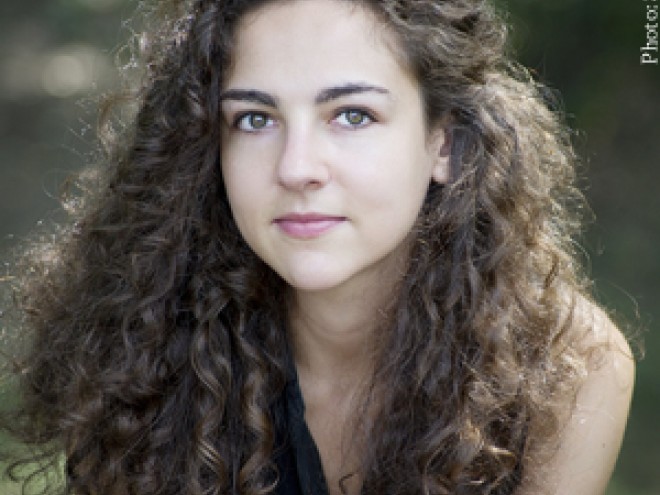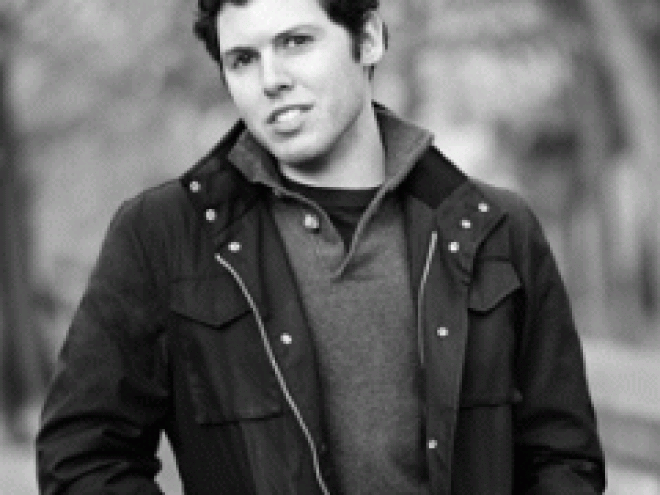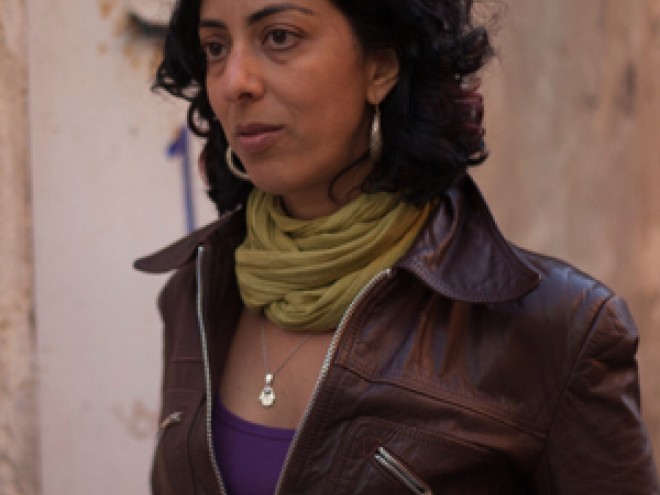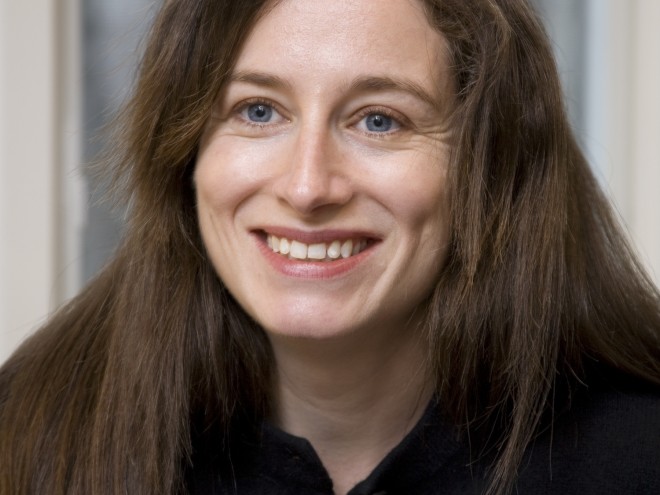Posted by Naomi Firestone-Teeter
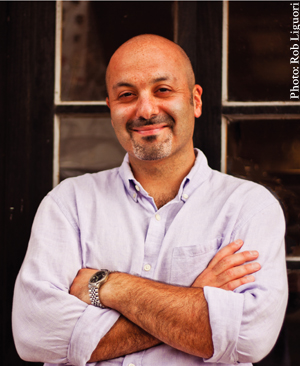 If you’re a loyal follower of the Jewish Book Council (and you obviously are), then you’re definitely already aware of Boris Fishman, one of our 2015 Sami Rohr Prize finalists. The author of the debut novel A Replacement Life, Boris wrote about family history and victimhood for JBC’s Visiting Scribe series, and the paperback edition of his book was featured as a “Book Cover of the Week” in January. He also wrote an article for the JBC to commemorate what would have been Bernard Malamud’s 100th birthday last year: Bernard Malamud at 100: The Wrong Writer for Our Age. And to top it off, Boris was a finalist for a 2014 National Jewish Book Award in fiction and will also appear at the final program in JBC’s literary series Unpacking the Book: Jewish Writers in Conversation. Suffice it to say, we’re fans of both Boris and his work! But in case you’re not familiar with him, we have a short Q&A below to help you get to know one of our five finalists a little better.
If you’re a loyal follower of the Jewish Book Council (and you obviously are), then you’re definitely already aware of Boris Fishman, one of our 2015 Sami Rohr Prize finalists. The author of the debut novel A Replacement Life, Boris wrote about family history and victimhood for JBC’s Visiting Scribe series, and the paperback edition of his book was featured as a “Book Cover of the Week” in January. He also wrote an article for the JBC to commemorate what would have been Bernard Malamud’s 100th birthday last year: Bernard Malamud at 100: The Wrong Writer for Our Age. And to top it off, Boris was a finalist for a 2014 National Jewish Book Award in fiction and will also appear at the final program in JBC’s literary series Unpacking the Book: Jewish Writers in Conversation. Suffice it to say, we’re fans of both Boris and his work! But in case you’re not familiar with him, we have a short Q&A below to help you get to know one of our five finalists a little better.
If you’re just tuning in, be sure to visit our profiles of Ayelet Tsabari, Kenneth Bonert, and Yelena Akhtiorskaya as well, and check back later in the week to learn more about our fifth, and final, 2015 SRP finalist, Molly Antopol.
What are some of the most challenging things about writing fiction?
A paradox: To write a good, true story, you have to fall deeper and deeper into it, into the characters, the setting, the storyline. But to write a good, true story, you also have to remain outside of it, to see its dramatic requirements with clarity and detachment, even coldness and impersonality. You have to connect, but not enmesh. It’s like love.
What or who has been your inspiration for writing fiction?
Some people change spouses. I change literary idols. In my teens, it was Gabriel Garcia Marquez, the patron saint of the lovelorn and literary. My debut novel A Replacement Life came into life under the spiritual mentorship of Bernard Malamud. I am on to Graham Greene now. This makes sense to me — much as every generation needs a new translation of foreign classics, different stations in a writing career would seem to call for different guides.
Who is your intended audience?
Everyone. Is there an author who would answer differently?
Are you working on anything new right now?
I’ve just finished revising my second novel Don’t Let My Baby Do Rodeo, which HarperCollins will publish in early 2016. It’s about an immigrant couple in New Jersey that adopts a boy from Montana who turns out to be feral.
What are you reading now?
I had a lull between hardcover and paperback publicity in January, and finally made up for lost reading time. I tore through about six books by Graham Greene; are there finer novels than The Heart of the Matter and The Comedians? Now, I am reading Alexandra Styron’s memoir of the great William Styron, who was a lot less great as a father than he was as a writer; James Agee’s A Death in the Family; several books about the Tohono O’odham Indians (I am teaching a workshop at their tribal college outside of Tucson in April); and Janet Malcolm’s Psychoanalysis: The Impossible Profession.
Top 5 favorite books
- The Assistant by Bernard Malamud
- Disgrace by J.M. Coetzee
- Legends of the Fall by Jim Harrison
- The Heart of the Matter and The Comedians by Graham Greene
- Patrimony by Philip Roth
When did you decide to be a writer? Where were you?
I was running to catch the crosstown one day… I’m kidding. It’s not very possible to answer this question concisely. It decided me. I had tried my best to avoid it.
What is the mountaintop for you? How do you define success?
To make a living from writing fiction and creative nonfiction, and related endeavors (teaching, speaking, etc.). To combine it robustly with family life. Most importantly, to encounter novelty, challenge, and surprise with regularity in my work and personal life. To always have things to learn — even as it’s often so painful to go through the learning.
How do you write — what is your private modus operandi? What talismans, rituals, props do you use to assist you?
There should be more. Because you are doing a highly unsocialized and also highly unpredictable thing. While the rest of the world goes off to work, you sit down in a chair wearing God knows what and start trying to make it rain. This would seem to call for superstition as urgently as a living room full of Soviet Jews. But I don’t really have any. (Superstitions, that is. I got plenty of Soviet Jews.) I wake up, 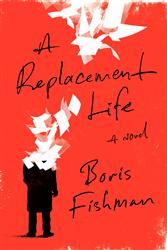 make coffee, and sit down to read for two hours — to get hopped up on what words can do via what someone else has done with them. Ideally, I’m throwing down the book before having reached my daily quota because I am too impatient to work my own hand at the same. I write for 3 – 4 hours, longer if I am revising. All this has to happen before anything else, with minimal interruption. Everything the day brings afterward is easy.
make coffee, and sit down to read for two hours — to get hopped up on what words can do via what someone else has done with them. Ideally, I’m throwing down the book before having reached my daily quota because I am too impatient to work my own hand at the same. I write for 3 – 4 hours, longer if I am revising. All this has to happen before anything else, with minimal interruption. Everything the day brings afterward is easy.
What do you want readers to get out of your book?
That Russian Jews are much more than merely funny. That Jews aren’t saints, and this hardly makes them less admirable — only more human. That good, page-turning stories can (I hope) co-exist with big ideas and high artistry. That labored-over writing is better and more important than writing that isn’t. That books say something no other medium can.
Boris Fishman immigrated from the USSR at age nine. He studied Russian literature at Princeton, was on staff at The New Yorker, co-wrote the US Senate’s Hurricane Katrina report, and has received a Fulbright to Turkey. He’s written for The New Yorker, The New York Times, The Wall Street Journal, Tablet, The Forward, The Jerusalem Report, and many others. A Replacement Life (Harper) is his debut novel. He lives in New York.
Related Content:
Originally from Lancaster, Pennsylvania, Naomi is the CEO of Jewish Book Council. She graduated from Emory University with degrees in English and Art History and, in addition, studied at University College London. Prior to her role as executive director, Naomi served as the founding editor of the JBC website and blog and managing editor of Jewish Book World. In addition, she has overseen JBC’s digital initiatives, and also developed the JBC’s Visiting Scribe series and Unpacking the Book: Jewish Writers in Conversation.
